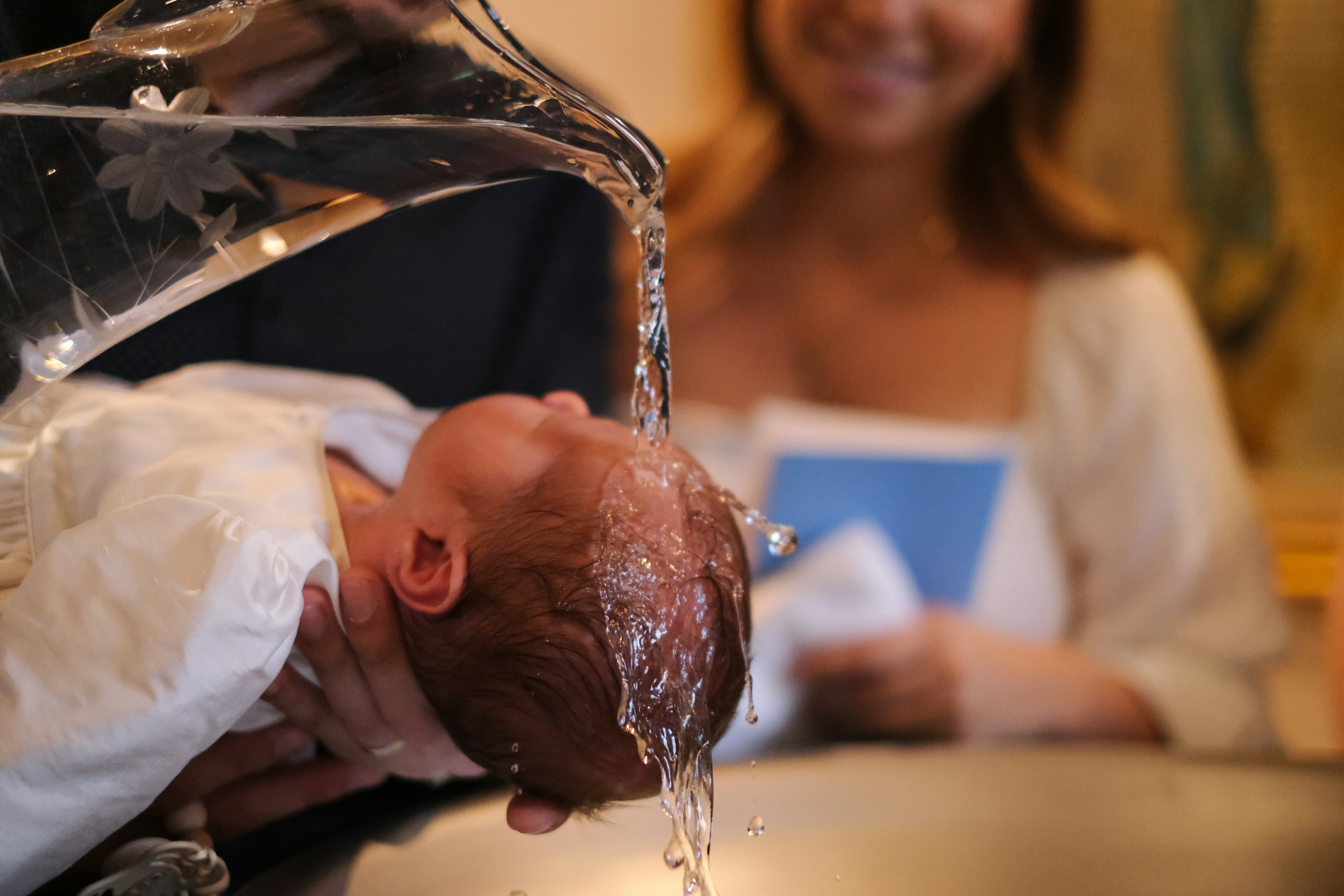December 10, 2024
Jason Bonnicksen

The Holy Scriptures seem to affirm so. That’s what we’re looking at today. The Apostle Peter wrote:
(1 Peter 3:21, ESV)
The Third Article of the Nicene Creed continues: “We acknowledge one Baptism for the remission of sins.”
Since the birth of the church, historical Christianity has affirmed that baptism (in and of itself) is a divine act — a rite, if you will — imparting salvation onto the receipt. For much of the church’s history, there’s been unity in the belief that baptism is a form of God’s saving grace, and as such all persons including newborns and the young should be baptized. Today, we’re discussing why we believe that Baptism saves and the practical implications for the church.
Oneness is a HUGE theme in the Nicene Creed; it begins with the Godhead Himself. We affirm and believe that the Father, the Son, and the Spirit are one. And in the same manner, Jesus’ desire for his church is to be of one heart, one mind, and one spirit also. But as we’ve also seen in past weeks, our humanness tends to get in the way of Christ’s ideal for his church.
But then, at the same time, we’ve also seen how we don’t need to have identical practices to be one church. Just as God has created a variety of races and languages; two distinct genders with differing physiology and brain chemistry; and gives individual markers to human beings that are unlike any other (fingerprints, for example); we are still one human race — each person created in the image of God. And while as a church we are to be ONE, our oneness as the Apostle Paul is only made complete when we add the distinctiveness of each believer into the whole
So, what then were the Apostles and Nicene Fathers alluding to? One scholar put it this way: “Baptism should be a rite that ‘breaks down divisive barriers’ between Jews and Greeks, rich and poor, slave or free, and men and women.” Paul spoke of this when we wrote:
Perhaps the question we should ask might be this: should it also be that among denominations? Can we have differing viewpoints and still be one? We’re going to touch on that today, as well as some practices, I believe, cause division within the universal church. The Apostle Paul’s wrote this also:
Clearly, Paul believed the church should be of one heart, mind, and spirit when it comes to our thoughts on what “one baptism” means. Because we’re on the topic of baptism, let’s look at some scriptures about the rite of baptism and who should be baptized, and when.
Scriptural support for children being baptized:
Setting aside our practice as Lutherans and what we’ve been taught, do you believe these scriptures support the practice of infant baptism (as an act of God’s saving grace?) Why or why not?
There are many examples in the scriptures of adults being baptized after coming to a saving belief in Jesus. The Ethiopian eunuch is one example (Acts 8:26–40). But because the scriptures don’t explicitly give us a specific example of an infant or child being baptized, the theological teaching of believer’s baptism only has become a planted flag in many denominational and “non-denominational” congregations.
Christians, such as Baptists or Evangelical Free for example, believe it’s okay to dedicate a child, citing Jesus’ dedication at eight days old in the Temple for example. But, because they can’t see obvious evidence for infants being baptized in the Holy Scriptures, they have difficulty believing baptism is an act of salvation by the LORD. Believers in these streams maintain baptism is an outward expression of one’s confession that Jesus Christ is Lord and Savior. Both camps cite Peter’s words as proof text. Peter wrote in his first letter to the church, where he stated, “Baptism…now saves you.”
All this is to say, how and when one is baptized in the universal church is disputed. In one camp are Roman Catholics, Orthodox believers, Lutherans, Methodists, Anglicans, Presbyterians, and Congregationalists. This camp maintains the ancient practice of baptizing infants and young children (and adults also), believing that the person being baptized is being saved in that rite.
This is purely and solely the affectual work of God to save in his mercy and grace through the promise of His word. God’s actions, Word, and promises are the focal point.
In the second camp are the Baptists, Anabaptists, Pentecostals, Evangelical Free, and non-denominationalism (among others). As I alluded earlier, this camp believes baptism is more or less an outward and secondary act of one’s spoken word expressing belief in Jesus. Here, the believer’s actions and words are the focal point.
Do you believe baptism is an outward expression of one’s public profession of faith, or rite and action taken by God? Why do you believe as you do?
This divergent viewpoint, while understandable to a degree, has created a fissure within the universal church. A dilemma from these differing views that’s arisen in recent decades is the practice of re-baptism. This happens when the second camp (most usually) verbally insinuates one’s being baptized as an infant is invalidated, because he/she didn’t choose to be baptized on his/her own accord, but because that choice was made for him/her (say by a parent or grandparent). Therefore, for one’s faith to truly be valid, one should be publicly baptized again to show as a testament of one’s faith. (To hear more about this, tune into the video and forward to the chapter: “Unintended Fissures” at marker 48min 23 sec.
© 2024 Jason Bonnicksen Ministries. All rights reserved